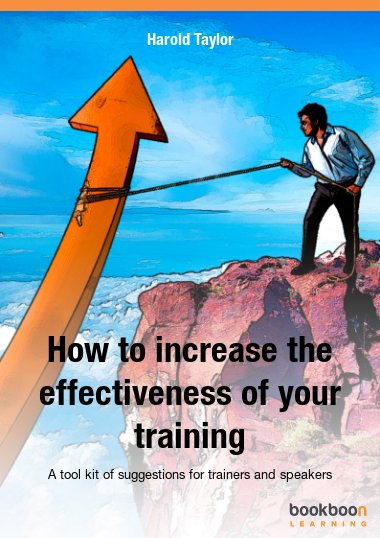Drawing on his forty years of speaking and training experience, Harold Taylor provides tips, techniques and training strategies for those involved in the transferring of information to others. A veritable trainer’s toolkit, this book takes you through the planning and preparation process, the design of the training program, the delivery, evaluation and application of the information to the learner’s work and life.
Whether you are a public speaker, corporate trainer, freelance workshop leader, teacher or manager, there is something for you in this book. Harold explains why you should never ask “Are there any questions?” , why training modules should not exceed twenty minutes, why it’s important to know the group and the problems they are experiencing before the actual training, how the room environment can affect learning, why a variety of visual aids in essential, how to measure training results and more.


